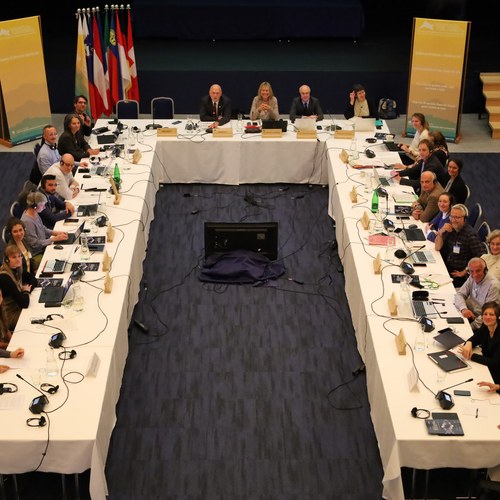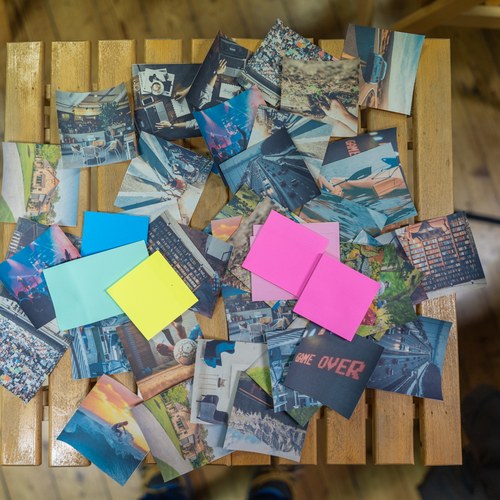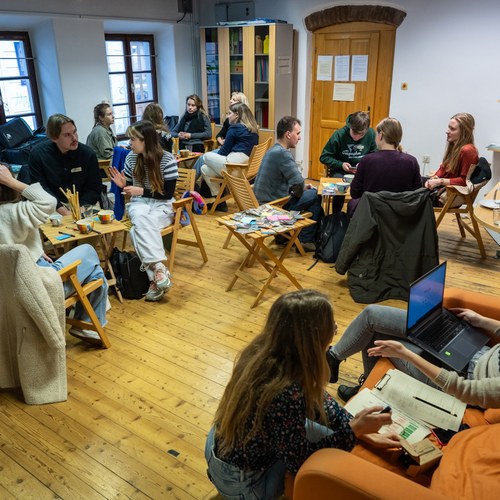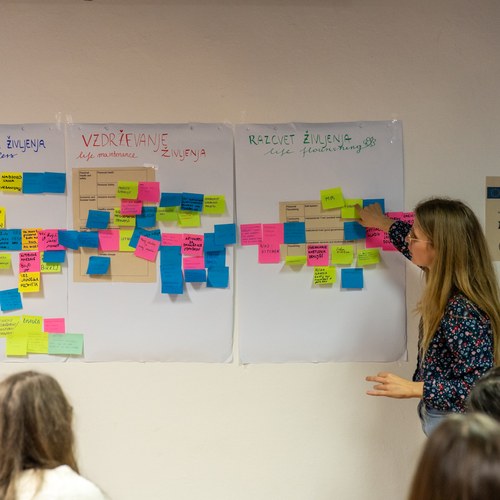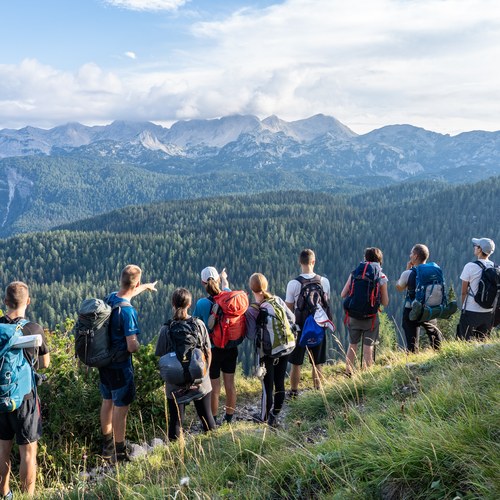Young people’s demands for a good life in the Alps
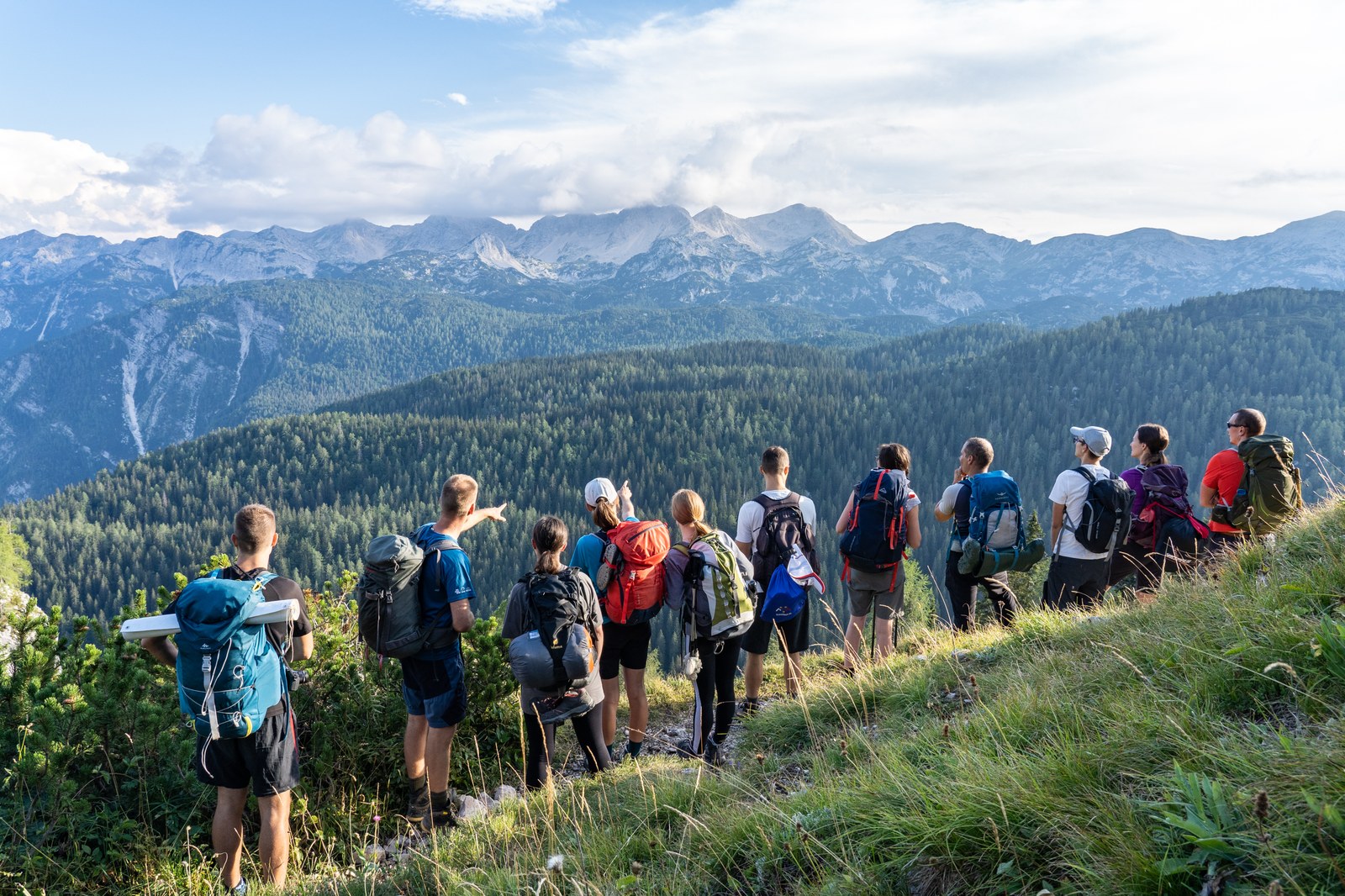
Affordable housing instead of overtourism, mental health, good and affordable public transport, work-life balance and protection of nature over economic interests: these factors will determine whether or not young people stay in the Alps in the future. In mid-May 2024, six young people from Slovenia, Germany and France presented their key political demands to the Standing Committee of the Alpine Convention. The three pleas are the result of the CIPRA project “Alpine Compass: Youth for Quality of Life in the Alps”.
Clear demands for a good life
Young people are first calling for more environmental protection, less land consumption and more space for nature in Alpine towns. Many of them witness the mountains being developed for tourism while the needs of the local population are neglected. They are calling for better management of the effects of mass tourism. In addition, many young people are leaving the Alps due to a lack of professional and personal development opportunities. The second demand emphasises that attractive and flexible jobs with the option of working from home and a wide range of leisure activities could prevent this exodus; options include reliable internet connections and shared offices, as well as cultural events and local meeting places. Third, young people are calling for extensive, affordable public transport in mountain regions as a route to environmentally friendly mobility.
“Although young people face similar challenges across the Alps, these are often not sufficiently taken into account”, explains Dijana Čataković of CIPRA Slovenia. The Alpine-wide results can be found in the English dossier “Quality of Life and Young People in the Alps”. “It is important that we now tackle these challenges together with the politicians”, Čataković emphasises.
Under the “Alpine Compass” project, CIPRA Slovenia as lead partner, together with CIPRA International, CIPRA Germany and CIPRA France, analysed what constitutes quality of life for young people aged 16-30 from Slovenia, Germany, France and Liechtenstein. The project was funded by Erasmus+.
